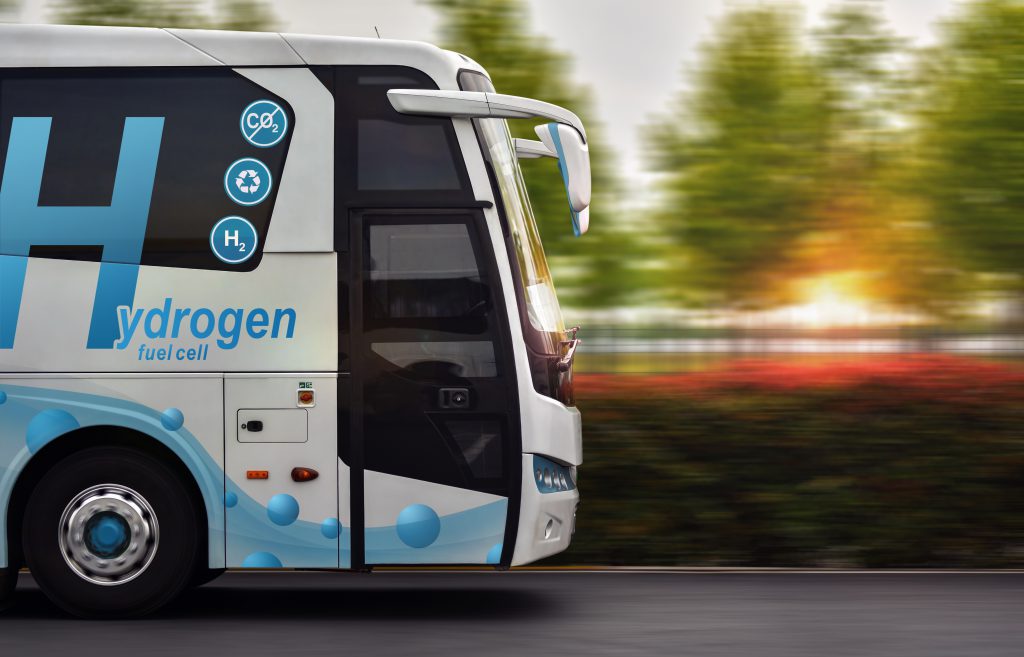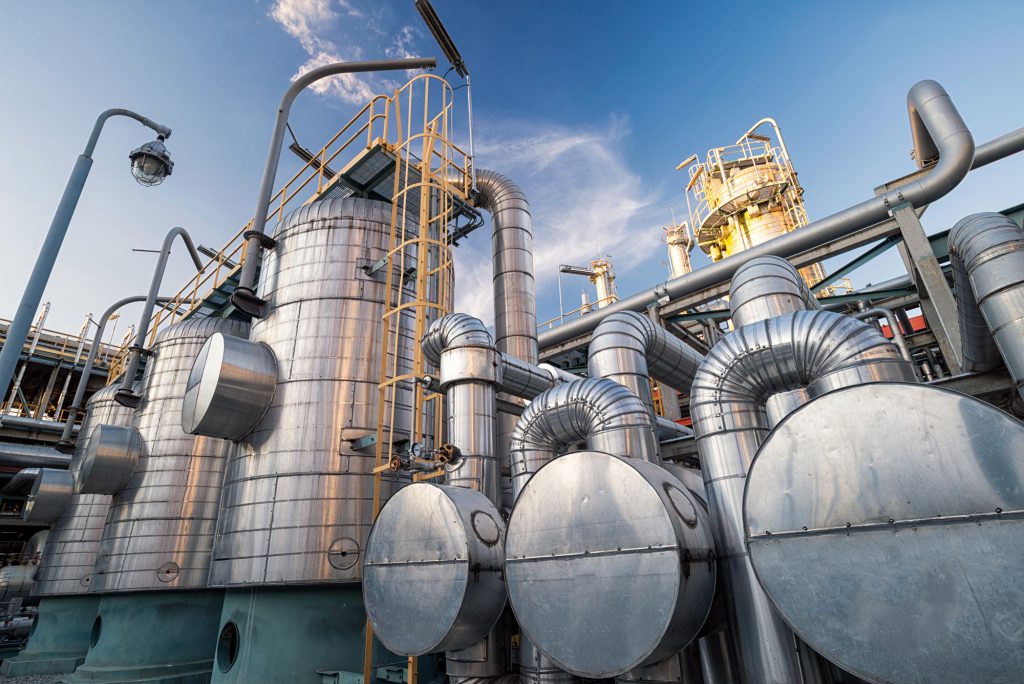The use of hydrogen directly as a gas or indirectly as an energy carrier is not an innovation that has to be proven on the market. Hydrogen, currently the second most traded gas in the world, is used primarily by refineries and the petrochemical industry. In addition to this already well-established application of the gas, hydrogen plays a significant role in the topic of the energy turnaround, as it can store large amounts of energy.
The big disadvantage of the existing manufacturing processes, however, is that the gain of this gas is burdened with high CO2 emissions by the use of heavy oil or natural gas.
Hydrogen Generation and Storage
But an entirely green energy balance of hydrogen is possible and most of all necessary! We achieve this through the use of electrolyzers, in which green hydrogen is produced from water and renewable energies.
Regional utilization
This green hydrogen can then make its contribution to CO2-free mobility, industry and energy supply in the next step.
Looking at the international mobility we perceive that most of it is based on fossil fuels. The society is increasingly required to switch to alternative engines to stop polluting the environment.
Regarding the market for electric vehicles, the debate often revolves around a competing ratio of battery-electric drives and those whose energy is derived from a fuel cell. But both technologies are complementary rather than competing, as they meet different requirements. Switching freight and long-distance transport, as well as aviation and shipping to hydrogen-based fuel engines, shows great advantages towards the battery:
- Technology reacts insensitively to environmental influences (e.g. cold)
- The fuelling process is similar to the existing handling (gasoline & diesel)
- Fuel cell vehicles are predestined for long distances
- Hydrogen can be used as the only seasonal long-term storage
At this point concepts are urgently needed which enable the passenger and freight traffic, to change fuel cell drives with sustainably produced hydrogen, while the price of the fuel remains affordable.
Large quantities of greenhouse gas emissions are emitted by the industry and in order to that the climate policy goal of the Paris two-degree target also poses major challenges for this sector. Individual infrastructure solutions can help companies to produce the green gas by themselves or to acquire hydrogen the most efficient way.
If hydrogen is needed in the industry, it is often used in the production of ammonia. Furthermore, the gas is used for the desulfurization of heavy oils or the steel industry.
But the application of hydrogen is not limited to these industries. In the decarbonisation of this sector, the green gas can be used as an energy source for processes and machines in addition to its direct use.
All industries are addressed here. For example, the range of H2 technology already includes forklift trucks whose propulsion system is based on hydrogen.
But if we do it, we’ll make it right! This is our guiding principle also in the project development of infrastructure solutions for industrial companies. We do not just switch your plants to hydrogen-based systems or offer you alternative technology on how to reduce your company’s CO2 emissions. We start even earlier within the hydrogen supply chain and also ensure an optimal value chain for the required green hydrogen.
Green electricity represents major importance of the energy transition. For example, in Germany, the yearly share of renewable energies reached nearly 43% in 2019. However, depending on the season, weather conditions, time and purchase quantities, situations can already arise today where renewables can cover up to 100% of electricity consumption.
Through the growing establishment of renewable energies, which will replace the fossil sources steadily, more and more power fluctuations must be compensated. At the same time, the necessity for a baseload capability for those volatile volumes raises. In order to be able to maintain this, seasonal long-term storage must be installed, which will supply our society with renewable energy even when there is no wind blowing and no sunshine. Also for the Federal Government in Germany hydrogen and fuel cell technology is a key technology for the transformation of the energy system.
Hydrogen is the only technology that can store large amounts of energy over long periods of time without major losses.
Last but not least it should be recognized that huge amounts of research funding are already being provided for fuel cell technology in order to make the technology cost-effective in relation to its competing climate unfriendly alternatives which are based on oil or coal. Great success has already been achieved in reducing the investment costs of plants and increasing the efficiencies of electrolyzers.
Buildings
Another important and often underestimated aspect of this sector is the energy supply of buildings. Looking at this aspect, hydrogen can also be integrated profitably, since the waste heat which is generated during power generation can be used additionally.



